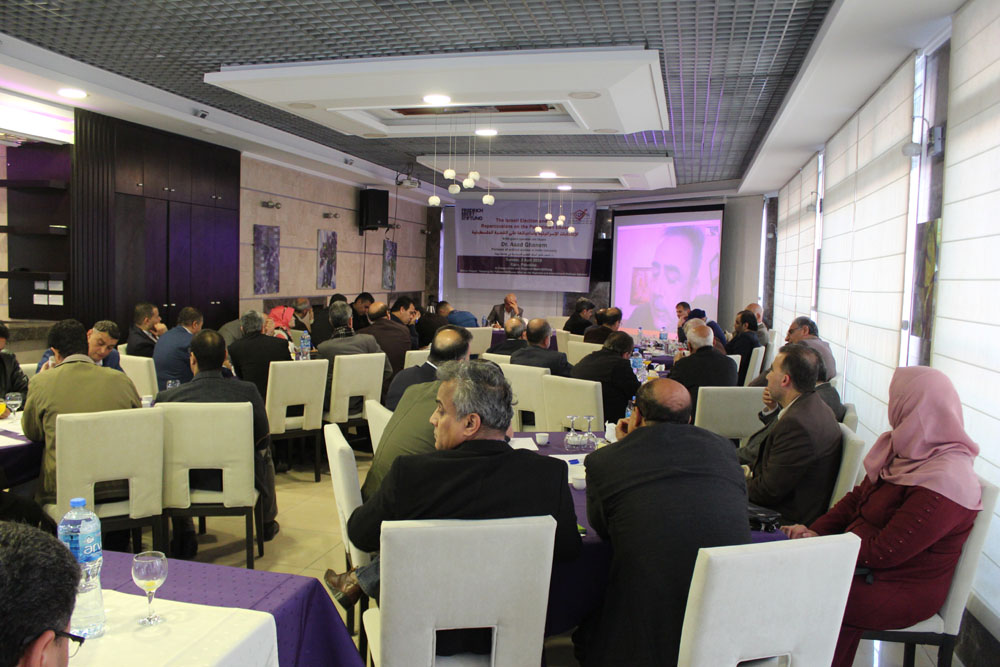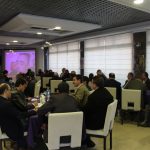The roundtable entitled ‘The Israeli Election and its repercussions on the Palestinian Cause’ implemented in partnership with Friedrich-Ebert-Stiftung within the project “Keeping the Palestinian Cause Alive on the Regional and International Political Agendas.” The session took place on Tuesday, April 2, 2019, at the level-up restaurant, Gaza City. The Guest Speaker is Dr. Asad Ghanem.
Mr. Omar Shaban, director of Pal-Think, welcomed the attendees and noted that despite all challenges imposed on Gaza, Pal-Think for Strategic Studies as an independent organization continue to foster dialogue and to keep in touch with the international community, which connect people in Palestine with the rest of the world.
“The Israeli policy affects us as Palestinians, not the other way around,” said Dr. Usama Antar, Program Director of FES. He also noted that the far-right wing dominates Israeli politics. Through such meetings, we hope to understand and become aware of the political environment surrounding us, thus to deal with it.
Dr. Asad Ghanem, several reasons led to the rise of the right-wing in the Israeli political arena: mainly due to the ethnic politics approach in Israel, elections have shifted on an ethnic basis, Arabs vote for Arabs and Russians for Russians and so on. This was considered a profound social change in Israel and its policies. Furthermore, the far-right tendency to spread xenophobia in Israel including immigrants and Arabs and also to intimidate the Israelis from the Palestinians and this is similar to the populist right-wing ideologies emerging in Europe. Besides, the absence of the Israeli left party from the political arena and pretty much its end.
The participants from researchers, professors, activists, and journalists have asked many questions involving: What is the future of the 1967 state under the current status quo? What affects Israeli public opinion? What is the future of Gaza after the new Israeli elections? What are the implications of Benjamin Netanyahu ignoring the Palestinian Authority?
To sum up, the political system is based on the block electoral system; there is a pragmatic end to the political party system, the parties in Israel are trying to form coalitions with the right wing and are unable to maneuver in the political arena. The Likud is the one that dominates decision making in Israel. Netanyahu’s government was the extremist right-wing in the history of Israel. Even if the left wing rises to power, it will not seek the establishment of a neighboring Palestinian state. The two-state solution is not viable anymore, Palestinians should think about the one-state solution at the moment, especially in the absence of the Palestinian political project and the lack of trust in the Palestinian political leadership. The question we must all ask the Palestinian leadership in 1948 is: How can they lead the Palestinians in this deteriorating situation, especially since it seems that the far-right is the dominant bloc that will dominate later?
Ultimately, it is necessary to rebuild the Palestinian leadership in the West Bank, Gaza, and 1948. For the right-wing exists and Likud is dominating the Israeli politics. There will not be any radical changes in Israeli politics in the coming years. As for Gaza, the most comfortable situation for Israel is the Palestinian divide, which is the greatest gift to the far-right. For the century’s deal, Palestinians themselves decide their destiny, not leadership.



















